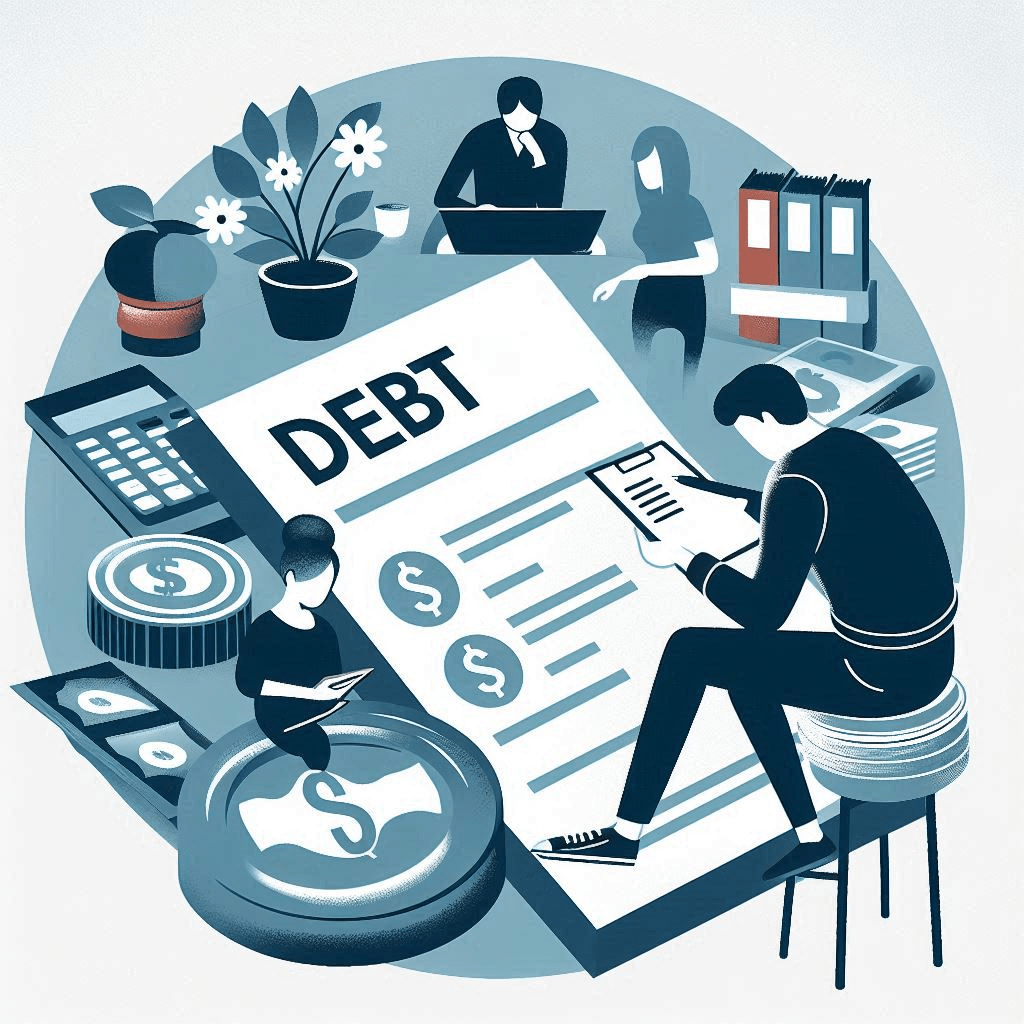Introduction
Debt can be a significant burden, affecting your financial stability and peace of mind. For many, managing multiple debts with varying interest rates, due dates, and terms can be overwhelming. Debt Management Plans (DMPs) offer a structured solution to help individuals regain control of their finances. Let’s take a comprehensive overview of DMPs, including their benefits, drawbacks, and key takeaways for those considering this option.
Brief Overview of Debt Management Plans (DMPs)
A Debt Management Plan is a personalized program designed to help individuals pay off their unsecured debts through a structured repayment plan. Typically administered by credit counseling agencies, DMPs consolidate multiple debts into a single monthly payment, making it easier to manage finances and reduce overall debt more efficiently.
Explanation of How DMPs Work
When you enroll in a DMP, a credit counselor works with your creditors to negotiate lower interest rates and waive certain fees. You then make a single monthly payment to the credit counseling agency, which distributes the funds to your creditors. The goal is to pay off the debt within three to five years, depending on the total amount owed and the negotiated terms.
Pros of Debt Management Plans
Lower Interest Rates
One of the most significant advantages of DMPs is the potential for lower interest rates. Credit counselors often negotiate with creditors to reduce interest rates, which can lead to substantial savings over time. Lower interest rates mean that more of your payment goes towards the principal balance, allowing you to pay off your debt faster.
Tip: Ensure your credit counselor is reputable and has a track record of successfully negotiating lower interest rates with creditors.

Savings on Fees
DMPs can also result in savings on fees. Creditors may agree to waive late fees, over-limit fees, and other charges as part of the DMP agreement. These savings can add up, making it easier to manage and reduce your debt.
Takeaway: Ask your credit counselor about the specific fees that can be waived through a DMP to understand the potential savings.
Single Monthly Payment
Managing multiple debts with different due dates can be challenging. A DMP simplifies this by consolidating all your debts into a single monthly payment. This not only makes it easier to keep track of your payments but also helps you avoid missed or late payments.
Tip: Set up automatic payments to ensure you never miss a payment and stay on track with your DMP.
Faster Debt Payoff
With lower interest rates and consolidated payments, a DMP can expedite the process of paying off your debt. The structured nature of a DMP ensures that you are consistently paying down your debt, helping you achieve financial freedom more quickly.
Takeaway: Stay committed to your DMP and avoid taking on new debt to maximize the speed of your debt payoff.
Cons of Debt Management Plans
Limited Credit
One downside of DMPs is that they may limit your ability to open new lines of credit. While you are enrolled in a DMP, creditors may be reluctant to extend new credit, as they prefer to see that you are committed to paying off your existing debts.
Tip: Focus on improving your financial habits and building a strong credit history while on a DMP, so you can access credit more easily once you complete the program.
Impact on Credit Score
Enrolling in a DMP can impact your credit score. While making consistent payments can improve your score over time, initially, your score may drop due to the closure of accounts or changes in your credit utilization ratio.
Takeaway: Monitor your credit score regularly and work with your credit counselor to understand how your DMP is affecting your credit.
Long Commitment
DMPs typically require a long-term commitment of three to five years. This extended period can be challenging for some individuals, especially if their financial situation changes.
Tip: Regularly review your budget and financial goals to stay motivated and committed throughout the duration of your DMP.
Not All Debts Included
Not all types of debt can be included in a DMP. Typically, only unsecured debts, such as credit cards, personal loans, and medical bills, are eligible. Secured debts, like mortgages and car loans, cannot be included.
Takeaway: Assess all your debts and discuss with your credit counselor to understand which ones can be included in your DMP.
Conclusion
Debt Management Plans offer a structured and effective way to manage and reduce debt. They provide benefits such as lower interest rates, savings on fees, a single monthly payment, and faster debt payoff. However, they also come with drawbacks, including limited credit, potential impacts on your credit score, a long-term commitment, and the exclusion of certain debts.
Final Thoughts on Who Might Benefit from a DMP
DMPs can be particularly beneficial for individuals struggling to manage multiple unsecured debts and seeking a more straightforward way to pay them off. If you are committed to improving your financial health and willing to make a long-term commitment, a DMP might be the right solution for you. Always consult with a reputable credit counseling agency to explore your options and create a plan tailored to your financial needs.



